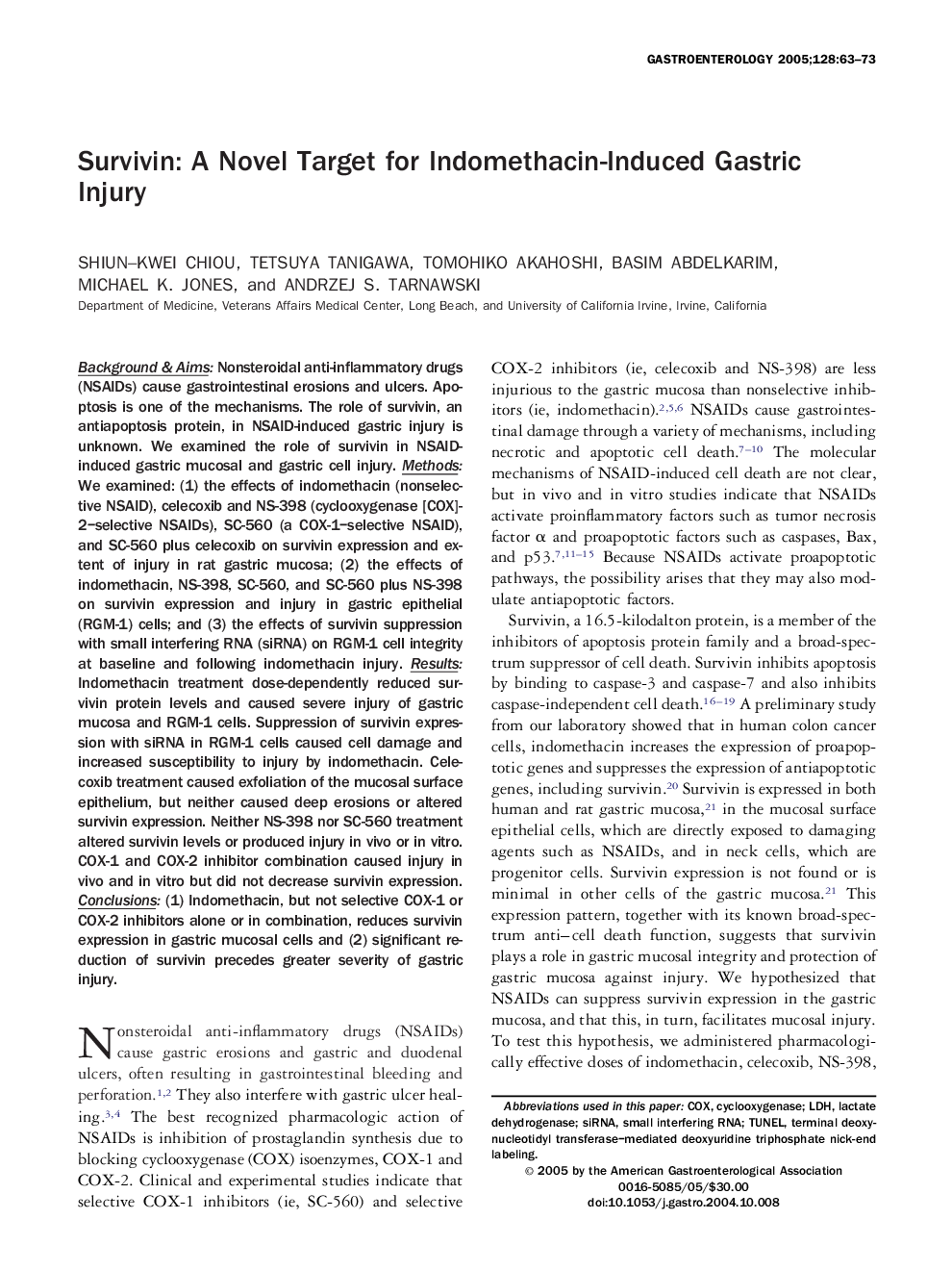| Article ID | Journal | Published Year | Pages | File Type |
|---|---|---|---|---|
| 9245919 | Gastroenterology | 2005 | 11 Pages |
Abstract
Background & Aims: Nonsteroidal anti-inflammatory drugs (NSAIDs) cause gastrointestinal erosions and ulcers. Apoptosis is one of the mechanisms. The role of survivin, an antiapoptosis protein, in NSAID-induced gastric injury is unknown. We examined the role of survivin in NSAID-induced gastric mucosal and gastric cell injury. Methods: We examined: (1) the effects of indomethacin (nonselective NSAID), celecoxib and NS-398 (cyclooxygenase [COX]-2-selective NSAIDs), SC-560 (a COX-1-selective NSAID), and SC-560 plus celecoxib on survivin expression and extent of injury in rat gastric mucosa; (2) the effects of indomethacin, NS-398, SC-560, and SC-560 plus NS-398 on survivin expression and injury in gastric epithelial (RGM-1) cells; and (3) the effects of survivin suppression with small interfering RNA (siRNA) on RGM-1 cell integrity at baseline and following indomethacin injury. Results: Indomethacin treatment dose-dependently reduced survivin protein levels and caused severe injury of gastric mucosa and RGM-1 cells. Suppression of survivin expression with siRNA in RGM-1 cells caused cell damage and increased susceptibility to injury by indomethacin. Celecoxib treatment caused exfoliation of the mucosal surface epithelium, but neither caused deep erosions or altered survivin expression. Neither NS-398 nor SC-560 treatment altered survivin levels or produced injury in vivo or in vitro. COX-1 and COX-2 inhibitor combination caused injury in vivo and in vitro but did not decrease survivin expression. Conclusions: (1) Indomethacin, but not selective COX-1 or COX-2 inhibitors alone or in combination, reduces survivin expression in gastric mucosal cells and (2) significant reduction of survivin precedes greater severity of gastric injury.
Keywords
Related Topics
Health Sciences
Medicine and Dentistry
Gastroenterology
Authors
Shiun-Kwei Chiou, Tetsuya Tanigawa, Tomohiko Akahoshi, Basim Abdelkarim, Michael K. Jones, Andrzej S. Tarnawski,
